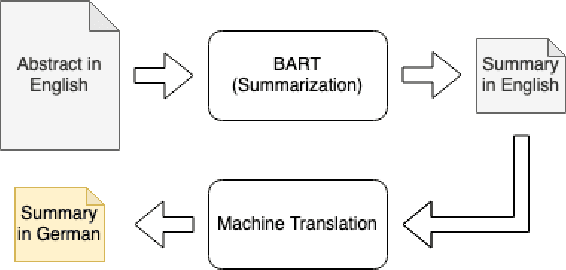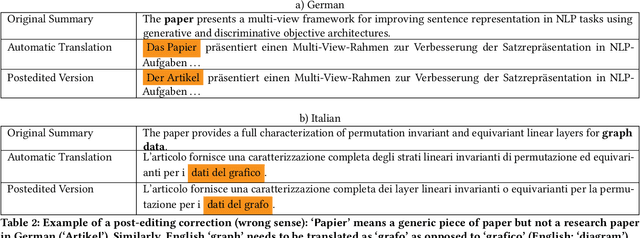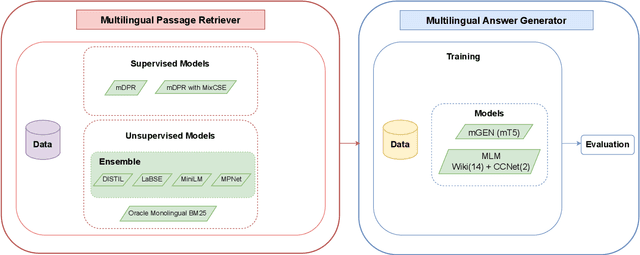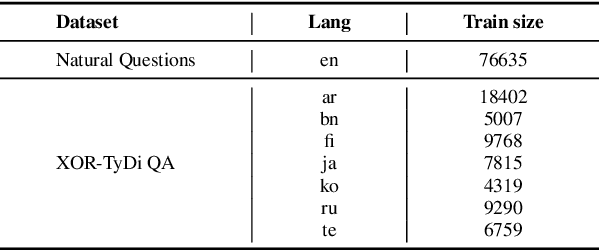Tommaso Green
CommonLID: Re-evaluating State-of-the-Art Language Identification Performance on Web Data
Jan 25, 2026Abstract:Language identification (LID) is a fundamental step in curating multilingual corpora. However, LID models still perform poorly for many languages, especially on the noisy and heterogeneous web data often used to train multilingual language models. In this paper, we introduce CommonLID, a community-driven, human-annotated LID benchmark for the web domain, covering 109 languages. Many of the included languages have been previously under-served, making CommonLID a key resource for developing more representative high-quality text corpora. We show CommonLID's value by using it, alongside five other common evaluation sets, to test eight popular LID models. We analyse our results to situate our contribution and to provide an overview of the state of the art. In particular, we highlight that existing evaluations overestimate LID accuracy for many languages in the web domain. We make CommonLID and the code used to create it available under an open, permissive license.
Leaky Thoughts: Large Reasoning Models Are Not Private Thinkers
Jun 18, 2025Abstract:We study privacy leakage in the reasoning traces of large reasoning models used as personal agents. Unlike final outputs, reasoning traces are often assumed to be internal and safe. We challenge this assumption by showing that reasoning traces frequently contain sensitive user data, which can be extracted via prompt injections or accidentally leak into outputs. Through probing and agentic evaluations, we demonstrate that test-time compute approaches, particularly increased reasoning steps, amplify such leakage. While increasing the budget of those test-time compute approaches makes models more cautious in their final answers, it also leads them to reason more verbosely and leak more in their own thinking. This reveals a core tension: reasoning improves utility but enlarges the privacy attack surface. We argue that safety efforts must extend to the model's internal thinking, not just its outputs.
ACLSum: A New Dataset for Aspect-based Summarization of Scientific Publications
Mar 08, 2024



Abstract:Extensive efforts in the past have been directed toward the development of summarization datasets. However, a predominant number of these resources have been (semi)-automatically generated, typically through web data crawling, resulting in subpar resources for training and evaluating summarization systems, a quality compromise that is arguably due to the substantial costs associated with generating ground-truth summaries, particularly for diverse languages and specialized domains. To address this issue, we present ACLSum, a novel summarization dataset carefully crafted and evaluated by domain experts. In contrast to previous datasets, ACLSum facilitates multi-aspect summarization of scientific papers, covering challenges, approaches, and outcomes in depth. Through extensive experiments, we evaluate the quality of our resource and the performance of models based on pretrained language models and state-of-the-art large language models (LLMs). Additionally, we explore the effectiveness of extractive versus abstractive summarization within the scholarly domain on the basis of automatically discovered aspects. Our results corroborate previous findings in the general domain and indicate the general superiority of end-to-end aspect-based summarization. Our data is released at https://github.com/sobamchan/aclsum.
BabelBERT: Massively Multilingual Transformers Meet a Massively Multilingual Lexical Resource
Aug 01, 2022



Abstract:While pretrained language models (PLMs) primarily serve as general purpose text encoders that can be fine-tuned for a wide variety of downstream tasks, recent work has shown that they can also be rewired to produce high-quality word representations (i.e., static word embeddings) and yield good performance in type-level lexical tasks. While existing work primarily focused on lexical specialization of PLMs in monolingual and bilingual settings, in this work we expose massively multilingual transformers (MMTs, e.g., mBERT or XLM-R) to multilingual lexical knowledge at scale, leveraging BabelNet as the readily available rich source of multilingual and cross-lingual type-level lexical knowledge. Concretely, we leverage BabelNet's multilingual synsets to create synonym pairs across $50$ languages and then subject the MMTs (mBERT and XLM-R) to a lexical specialization procedure guided by a contrastive objective. We show that such massively multilingual lexical specialization brings massive gains in two standard cross-lingual lexical tasks, bilingual lexicon induction and cross-lingual word similarity, as well as in cross-lingual sentence retrieval. Crucially, we observe gains for languages unseen in specialization, indicating that the multilingual lexical specialization enables generalization to languages with no lexical constraints. In a series of subsequent controlled experiments, we demonstrate that the pretraining quality of word representations in the MMT for languages involved in specialization has a much larger effect on performance than the linguistic diversity of the set of constraints. Encouragingly, this suggests that lexical tasks involving low-resource languages benefit the most from lexical knowledge of resource-rich languages, generally much more available.
X-SCITLDR: Cross-Lingual Extreme Summarization of Scholarly Documents
May 30, 2022



Abstract:The number of scientific publications nowadays is rapidly increasing, causing information overload for researchers and making it hard for scholars to keep up to date with current trends and lines of work. Consequently, recent work on applying text mining technologies for scholarly publications has investigated the application of automatic text summarization technologies, including extreme summarization, for this domain. However, previous work has concentrated only on monolingual settings, primarily in English. In this paper, we fill this research gap and present an abstractive cross-lingual summarization dataset for four different languages in the scholarly domain, which enables us to train and evaluate models that process English papers and generate summaries in German, Italian, Chinese and Japanese. We present our new X-SCITLDR dataset for multilingual summarization and thoroughly benchmark different models based on a state-of-the-art multilingual pre-trained model, including a two-stage `summarize and translate' approach and a direct cross-lingual model. We additionally explore the benefits of intermediate-stage training using English monolingual summarization and machine translation as intermediate tasks and analyze performance in zero- and few-shot scenarios.
ZusammenQA: Data Augmentation with Specialized Models for Cross-lingual Open-retrieval Question Answering System
May 30, 2022



Abstract:This paper introduces our proposed system for the MIA Shared Task on Cross-lingual Open-retrieval Question Answering (COQA). In this challenging scenario, given an input question the system has to gather evidence documents from a multilingual pool and generate from them an answer in the language of the question. We devised several approaches combining different model variants for three main components: Data Augmentation, Passage Retrieval, and Answer Generation. For passage retrieval, we evaluated the monolingual BM25 ranker against the ensemble of re-rankers based on multilingual pretrained language models (PLMs) and also variants of the shared task baseline, re-training it from scratch using a recently introduced contrastive loss that maintains a strong gradient signal throughout training by means of mixed negative samples. For answer generation, we focused on language- and domain-specialization by means of continued language model (LM) pretraining of existing multilingual encoders. Additionally, for both passage retrieval and answer generation, we augmented the training data provided by the task organizers with automatically generated question-answer pairs created from Wikipedia passages to mitigate the issue of data scarcity, particularly for the low-resource languages for which no training data were provided. Our results show that language- and domain-specialization as well as data augmentation help, especially for low-resource languages.
 Add to Chrome
Add to Chrome Add to Firefox
Add to Firefox Add to Edge
Add to Edge